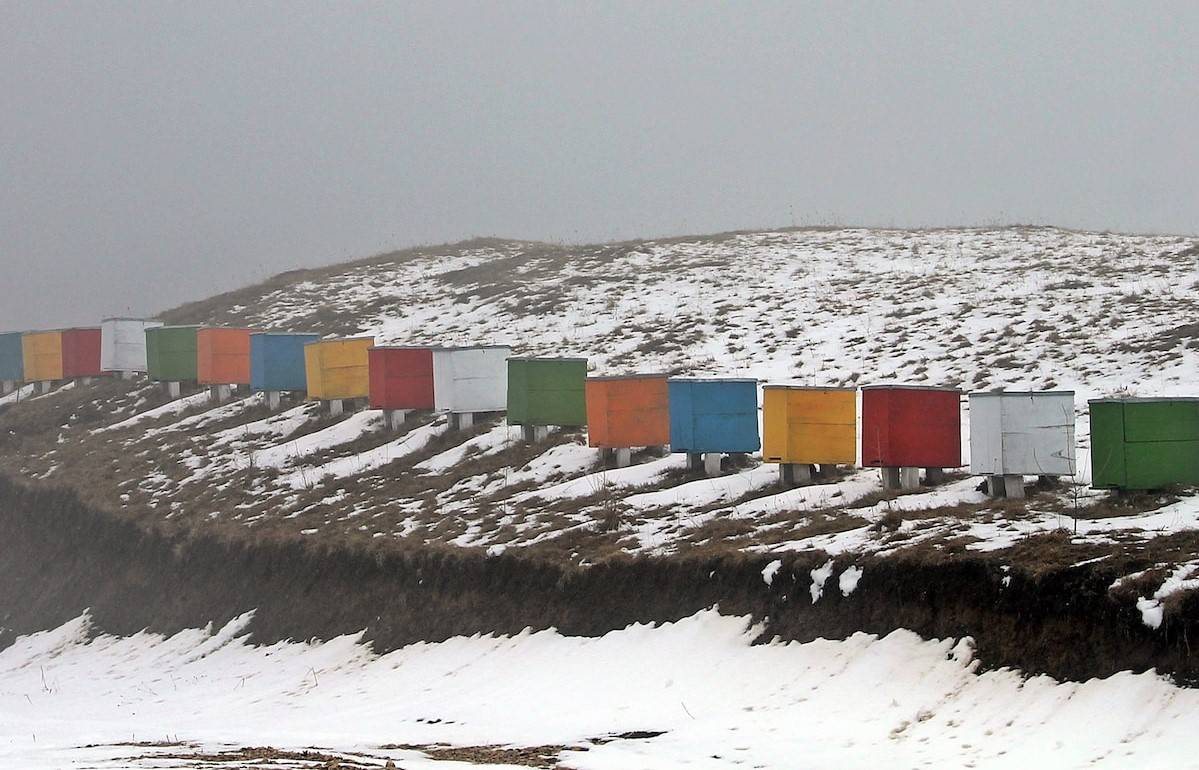When the leaves fall and the temperature drops, most of us curl up indoors with a steaming cup of hot chocolate.
Everything in nature slows down, and some creatures press pause. While some animals go into a state of suspended animation, the rest find innovative ways to brave the winter months.
Many bee species do hibernate, but not all. A honey bee falls in the second category. Just like humans, honey bees do not hibernate in the winter.
If Honey Bees don’t Hibernate, what do they do?
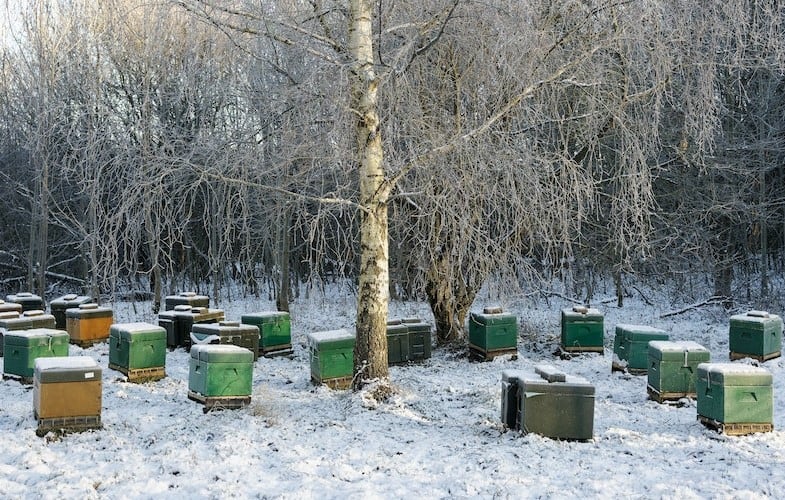
The intensity of winter varies depending on geographical location. In tropical climates, winters are mild, meaning there are flowers to forage on throughout the year.
But in colder areas, winter is like a cold desert. There’s no nectar or pollen in the environment. And so, what happens to bees in winter?
There’s no reason for bees to leave the hive. The low temperatures would kill the individual bees. They rely on each other for warmth.
Staying alive in winter is hard for a cold-blooded insect. They need the energy to generate heat and survive the winter.
The key energy source is honey, which they collect in the fall. They need enough honey to get them through to the spring when nectars will start to flow again.
When bees hibernate, they also rely on honey as an energy source to keep their bodies warm.
How Does a Colony Prepare for Winter?
Collect and store nectar
Honey exists to sustain bees in the absence of nectar. The nectars that bees collect are cured by dehydration to increase their shelf life.
Beekeepers rely on the fall nectar flow to supply enough for their bees. If the bees can’t collect enough, beekeepers supplement their food with sugar syrup and sometimes solid sugar alternatives.
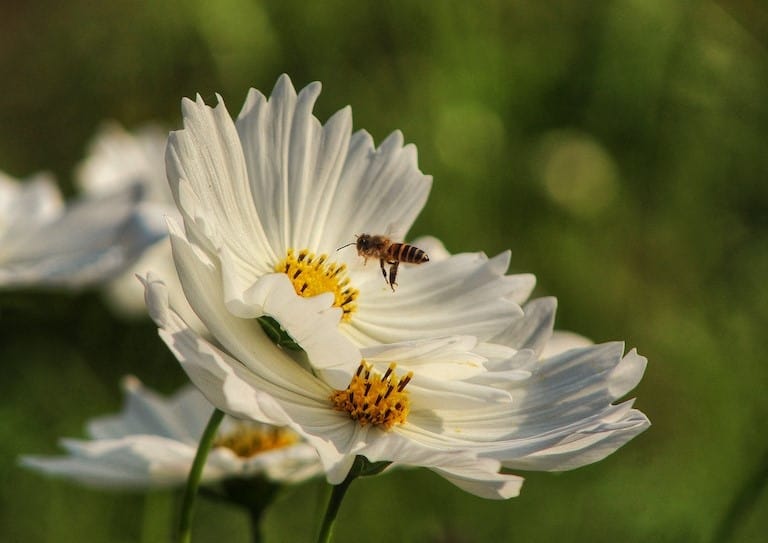
Get rid of drones
The colony is an efficient superorganism. It does not waste energy or resources.
The colony does not need drones in the winter since they only exist for mating. Therefore, feeding them is an unnecessary luxury.
That’s bad news for the drones, but it improves the colony’s survival chances.
Cutting down on brood
The presence of a brood necessitates the collection of pollen. With no flowers blooming in the winter, there wouldn’t be enough food to keep feeding the brood.
When there’s a drop in pollen supply, two things happen. First, the queen reduces her rate of laying eggs, and then, the winter bees emerge.
What are Winter Bees?
Winter bees are special worker bees that are physiologically different from spring and summer bees. They are born out of adversity.
When food is scarce, the reduced nutrition triggers a physiological change in the larvae.
Winter bees, sometimes called fat bees, store fat and other nutrients such as protein in their abdomen.
They also have the unique ability to feed broods in early spring with a limited supply of pollen.
Workers emerge in the spring and summer to work themselves to death. These honey bees live for about six weeks. If a predator doesn’t get them, their little bodies give out, and these workers die.
Winter bees don’t forage, so they don’t tire themselves out. Bees will fly out when the weather is mild to defecate, which is called a cleansing flight. Aside from that, they stay mostly indoors.
Winter bees can live up to 6 months in places with long winters. As winter comes to an end, the queen starts to lay eggs again. The winter bees get to work, feed the bees, and begin to forage. Soon after, they will die, and the worker bees that emerge in the spring will take their place.
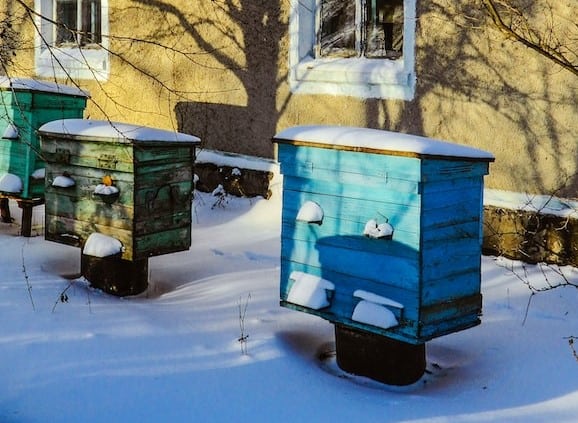
Do Bees Die Off in the Winter?
Unfortunately, many beekeepers lose their colonies in the winter. It’s one of the reasons beekeepers split colonies in the spring.
Why do bees die in the winter?
1. Pests and Diseases
Pests such as varroa spread diseases, weakening colonies.
Beekeepers are advised to carry out mite counts and treatments in the fall to give their bees the highest chance of survival.
2. Starvation
The bees can run out of honey. This happens when a beekeeper harvests too much honey or the nectars available in the fall are insufficient. And these scenarios cause the bees to starve. They vibrate to generate heat and then huddle together so that the queen stays at a toasty 90 degrees F.
If they run out of honey, they can’t survive. When nature fails, beekeepers substitute nutrition with candy boards or sugar syrup.
3. Hypothermia
If the colony is small, it can’t generate enough heat to keep them warm. If the colony was weakened by disease in the fall, the swarm going into the winter could be too small to survive even with an adequate supply of honey.
When a beekeeper has one or more small colonies, they move them into a nuc, which is smaller and easier to keep warm.
Alternatively, they can combine two small colonies to get them through the winter and then split them in the spring.
What do Other Bee Species do in Winter?
Bumble bees
Only queen bumble bees live through the winter.
The queen bee mates in the fall, then finds abandoned burrows and hibernates through the winter. New queens emerge in the spring, feed, and begin a new colony.
Carpenter bees
Carpenter bees hibernate in previously drilled nests as adults. They spend the fall feeding and then find an empty nest and settle in for winter.
When the temperature gets a bit warmer, they emerge, mate, and make new nests for the next generation.
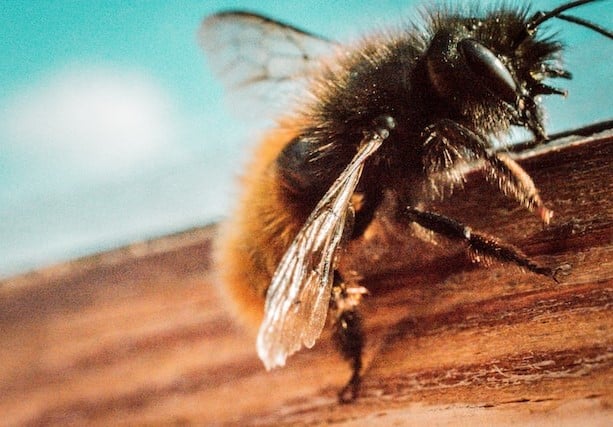
Mason bees
Mason bees spend the winter as adults but remain in their spun cocoons until spring. The cocoon protects the adult bee from the freezing weather until it is time to emerge.
Leafcutter bees
Leafcutter bees spend winter in a cocoon in a prepupal state. The pupa has naturally occurring glycerol in its body that protects it in the winter. It suspends development until the weather changes. When the temperature rises, the pupa develops into an adult and emerges.
In Summary
Now that you know what honey bees do in the winter, you can appreciate them a little more. All the honey they collect gives them a better chance at survival.
If you are new to beekeeping, you now understand why it’s best not to harvest your first year.
They need the honey more than you do, and they will return the favor in your second year.
